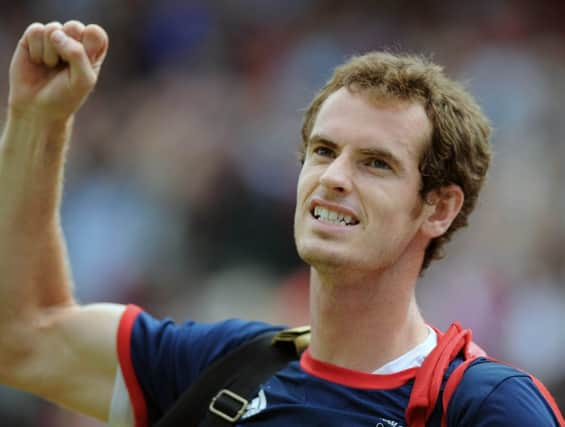Making yourself a brand a wise move


ALONG with his 2012 Olympic gold medal and two Grand Slam titles, Andy Murray secured another boost to his career when at the tail end of last year he registered the trademark of his name. While you might think this should be a relatively straightforward process, Andy succeeded where other sporting figures and celebrities, including Sir Alex Ferguson, have hit barriers in registering their names as trademarks to prevent others from capitalising on their fame and achievements.
After initially being refused a trademark for his name on the grounds it was not distinctive enough, Sir Alex was ultimately successful in getting his name registered as a trademark. Fortunately for Andy Murray – a name which is also not uncommon, especially here in Scotland – it was a smoother process. The UK Intellectual Property Office awarded him trademark for his name on the basis that it met their legal criteria in that (among other things) it is a sign or brand which distinguishes his goods or services from those of his competitors.
Advertisement
Hide AdAdvertisement
Hide AdThe Andy Murray trademark covers a wide range of goods and services including clothing, footwear, computer games, sporting goods, soft toys, education and sport coaching services. Indeed a trademark can be registered against any number of classes of goods provided there are no pre-existing marks registered in those classes that are the same or too similar. Of course, the more that are registered, the more expensive the application fee – although that is not likely going to be an issue for a celebrity or large company with deep pockets and potential to use most, if not all, of these registered classes as a commercial outlet to their brand.
The Murray trademark is certainly wide enough that he could now license his name to a large number of items, as long both he and his advisers are happy that he’s not diluting his brand by associating himself with too many or the wrong type of items. Andy Murray may never put his name to a soft toy, for example, but in registering his brand against such a wide range of goods, he has the flexibility to choose which products he wishes to associate himself with. Most importantly, it gives him legal protection if others try to cash in on his fame by using his name on products or services without his consent.
The potential value of Murray the brand will likely be determined by the future path of his tennis career and other key factors such as media profile and other work, such as ambassadorial roles, that he may be involved in further down the road.
Andy would do very well to match the trademark success of his counterpart Roger Federer whose brand, according to Forbes Magazine, is worth around US$26 million. It is an impressive portfolio with ten major deals, including a Nike sponsorship which is the most lucrative within tennis. Notably, Federer is also the only remaining one of Gillette’s original three champions to be maintained with the toiletries firm dropping their association with Thierry Henry and Tiger Woods. You need not feel a great deal of sympathy for Tiger in terms of his trademark however, as his brand is currently valued at approximately $55 million.
Of course, the benefits of registered trademarks extend beyond celebrities. They are an effective way to protect intellectual property rights and add value to any company’s brand. According to the 2011 Hargreaves review into intellectual property, investment by UK businesses in intangible assets (which includes intellectual property rights) has outstripped investment in tangible assets by a considerable margin for a number of years.
Intellectual property assets are without doubt essential to the growth of businesses, and are often the most valuable assets on a company’s balance sheet. Ensuring legal protection of these assets, as Andy has done, is an important investment. It’s also important to take advice before embarking on this process to ensure that your application is properly drafted so that it meets the legal criteria and is suitably widely worded to give you the protection you need in the classes of goods and services that you require.
Ultimately, registering your trademark, which enables you to use “RTM” (Registered Trade Mark) or the ® symbol next to your brand name, gives notice to the outside world that you are a bona fide brand.
Who knows what the future value of Andy Murray the brand will be? With a few more Grand Slam titles, he could well be on a similar path to other sportsmen who have seen eight figure valuations attached to their name.
• Lisa Douglas is a corporate solicitor at legal firm Davidson Chalmers www.davidsonchalmers.com
SEE ALSO